United Airlines has today announced its latest investment in sustainability.
In this post:
United invests in hydrogen-electric engines
United Airlines is spending $35 million to acquire an equity stake in hydrogen-electric engine developer ZeroAvia. Hydrogen-electric engines use electricity created by a chemical reaction in a fuel cell to power an electric motor, instead of burning fossil fuel. This investment is part of United’s goal of being 100% green by reducing GHG remissions by 100% by 2050, without relying on carbon offsets.
This agreement also gives United the ability to purchase up to 100 zero-emission, 100% hydrogen engines that would be used on United Express regional jet aircraft by 2028. United is conditionally purchasing 50 ZeroAvia ZA2000-RJ engines, with an option for 50 more, which would be enough to power 50 twin-engine aircraft. Specifically, these engines could be retrofitted on existing United Express aircraft, including the premium 50-seat CRJ-550.
The first step for ZeroAvia is to develop the ZA600 engine, which can be used on 19-seat aircraft. The aim is to have these in commercial service by 2024. From there the company is hoping to develop hydrogen-electric propulsion for progressively larger aircraft.
Here’s how United Airlines CEO Scott Kirby described this initiative:
“Hydrogen-electric engines are one of the most promising paths to zero-emission air travel for smaller aircraft, and this investment will keep United out in front on this important emerging technology. United continues to look for opportunities to not only advance our own sustainability initiatives but also identify and help technologies and solutions that the entire industry can adopt.”
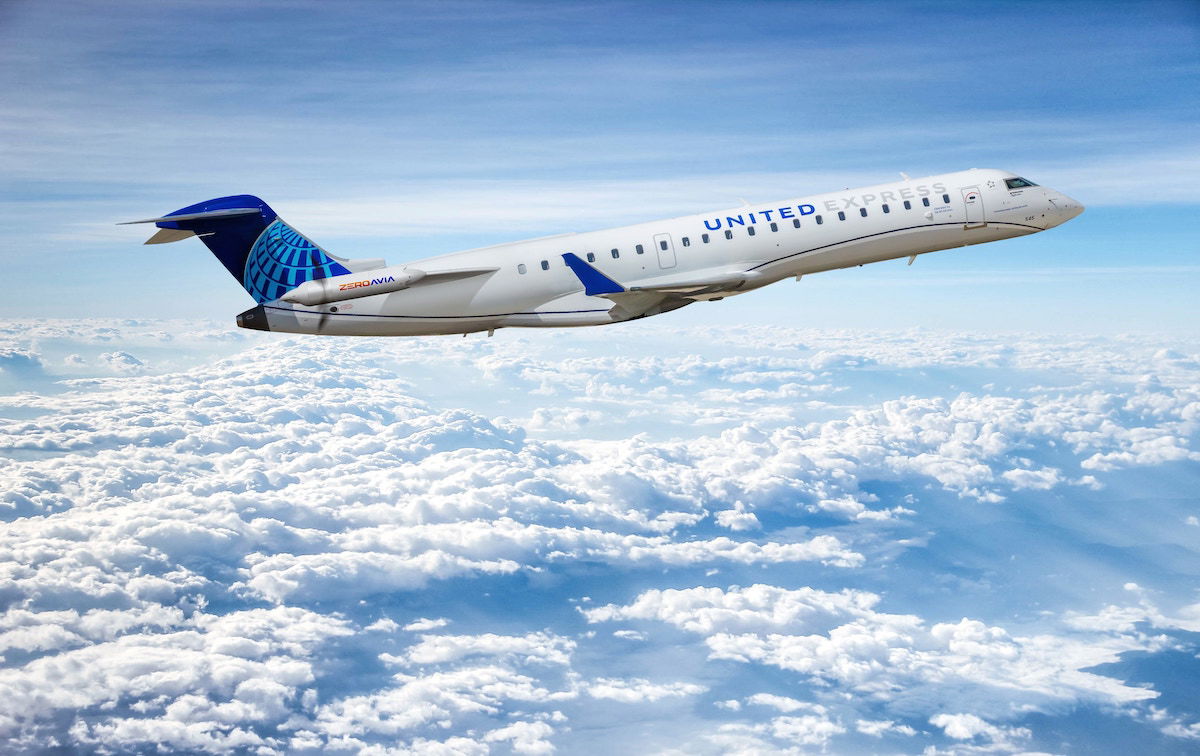
It’s great to see United focused on the future
Today’s announcement of United investing in hydrogen-electric aircraft is far from the first such initiative from the airline. In the past year or so, United has also announced plans to purchase 200 electric air taxis, 19-seat electric jets, and supersonic jets, among other initiatives.
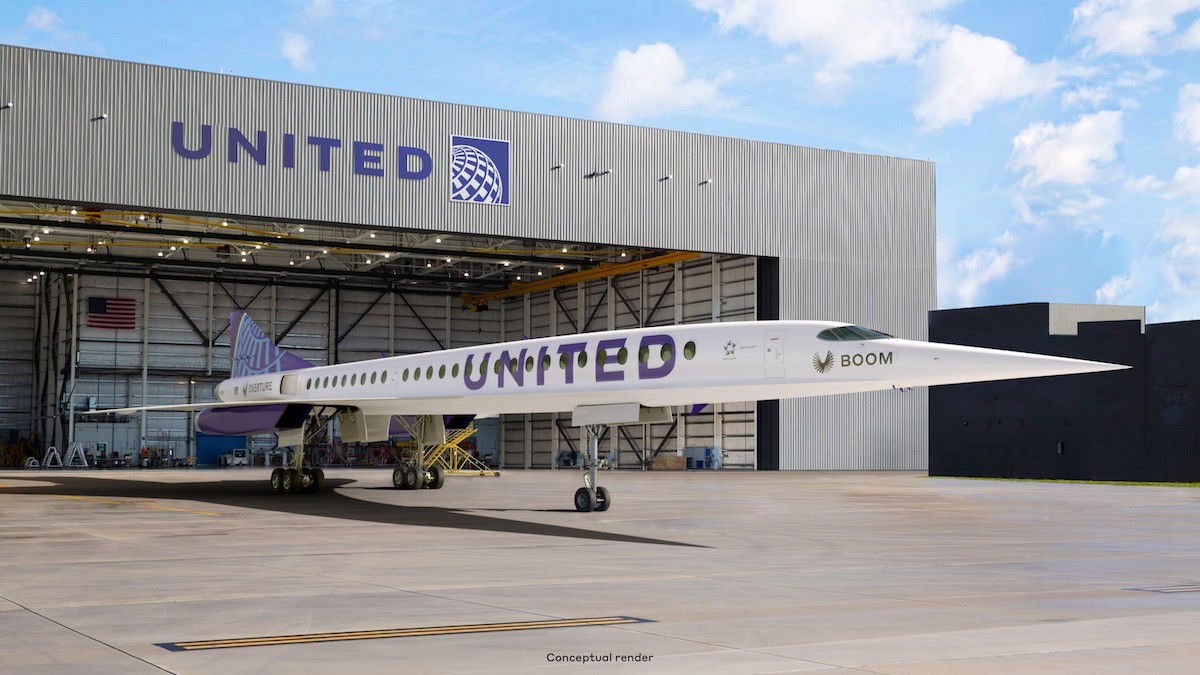
Will these concepts ever come to life? I don’t know, it’s anyone’s guess. I’ll be the first to admit that I was initially skeptical of United’s motives here. That’s changing over time, and I’m happy to see United’s investments in these areas:
- Yes, there’s no denying that this is largely about optics, and about United Airlines trying to reposition itself as an innovative carrier; Scott Kirby has done a phenomenal job with that
- While some of these concepts seem hard to grasp at this point, realistically they’ll only ever become a reality if they get the backing (both in terms of money and confidence) from major companies, like United
- So while American is investing in turkey pastrami sandwiches and removing televisions from planes, United is investing in the future, and is also investing in improving the passenger experience
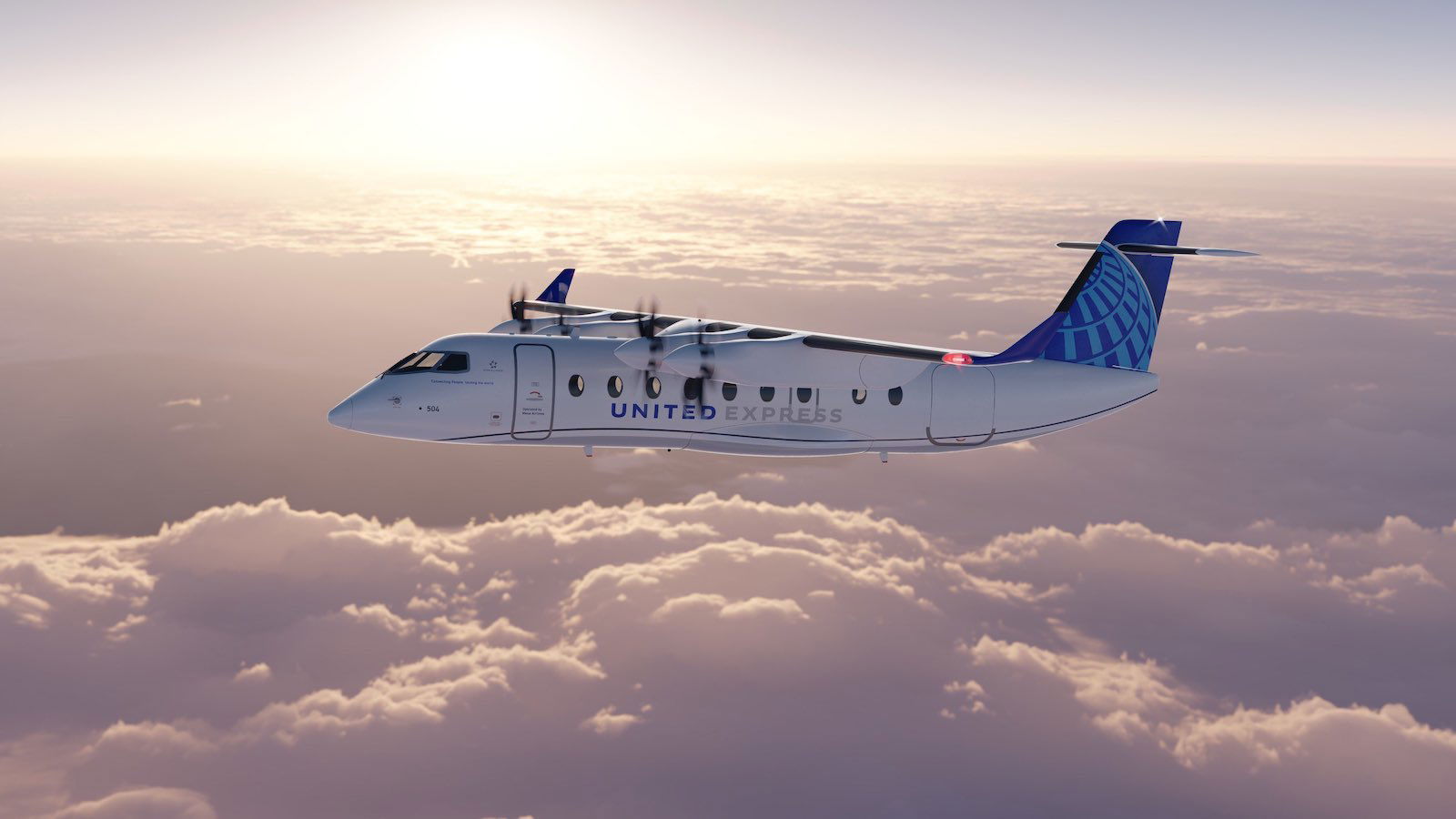
Bottom line
United Airlines is investing $35 million in ZeroAvia, a hydrogen-electric engine manufacturer. This also includes a conditional order for up to 100 of these engines, with the hope of them being able to power United Express aircraft by 2028. This is United’s latest investment in the future of aviation and reducing emissions.
United’s investment in all of these products is no doubt partly about optics, and about making United seem more innovative and cutting-edge. At the same time, these are positive and needed investments, because aviation is headed this way. Airlines like United investing money in and putting faith in these products improves the odds of these becoming a reality.
I’m curious how many of these concepts we actually see in United’s fleet in the future.
What do you make of United investing in ZeroAvia?


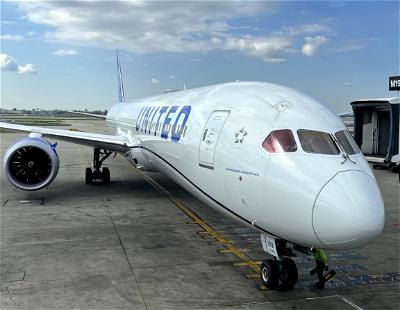
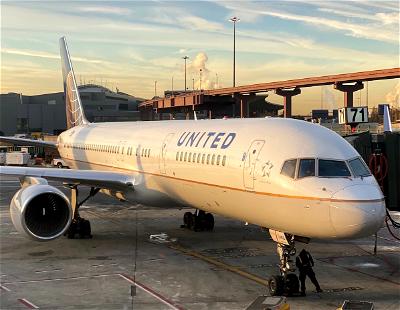
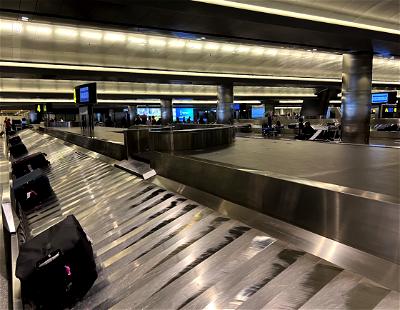
I will copy my comment on an earlier article about a similar investment and paste it here.
"Low passenger carrying, short haul, electrically driven aircraft may be becoming more viable in the next 10-20 years with advancements in higher density batteries. To date, the only major commercial aircraft to take a leap in this direction is the B787 with it's electrically powered surfaces but the propulsion remains a petroleum-based turbofan. Simply, batteries are heavy,...
I will copy my comment on an earlier article about a similar investment and paste it here.
"Low passenger carrying, short haul, electrically driven aircraft may be becoming more viable in the next 10-20 years with advancements in higher density batteries. To date, the only major commercial aircraft to take a leap in this direction is the B787 with it's electrically powered surfaces but the propulsion remains a petroleum-based turbofan. Simply, batteries are heavy, have low energy densities and contribute to a high weight-to-thrust ratio.
The hydrogen economy has been tried and tested in various scales over the years. However, I see little progress in the major use of hydrogen as an alternative to petroleum even in the future. The low density of hydrogen requires high cryogenic compression to store any substantial value of energy. While hydrogen has a high specific energy density, it's volumetric energy density remains low without substantial compression. There are inherent problems with flying around holding large tanks of compressed combustible substance with a low-ignition-limit like hydrogen. Even if we overcome the practical problems with storage and calorific value, cultivation of hydrogen consumes excessive energy, either through hydrolysis or through pyrolysis and/or gasification. The latter two also releasing large quantities of GHGs in the process and all requiring a primary energy source. Due to all this, I consider natural gas is a more viable alternative. It is cleaner (than jet kerosene), more efficient as a fuel and easily adaptable to the existing gas turbines. Nat gas can be extracted as it is done today or synthesized through gasification or biochemical pathways.
So while I am all for the advancement of science and genuinely wish Embraer the best, I would place my money on renewable (maybe bio) fuels and more efficient aircraft engine concepts, including the return to turboprops, because they are extremely efficient and latest designs are quiet. Ultimately, the underlying issue at hand is not the energy that we use in the aircraft, but how we produce that energy to begin with. Electricity, hydrogen, jet kerosene, natural gas can all be created through carbon neutral or carbon intensive methods - the cost remains the prohibitive factor for the former.
Clearly a topic I very much am invested in."
&Bob - It’s very common that a major carrier like United will purchase regional aircraft which they then in turn lease to their regional partners. Few regionals have the cash or credit to purchase a large number of aircraft on their own. This way their limited cash is not tied up in aircraft purchases and depreciation. It also make it easier for United to switch aircraft from one regional partner to another.
Ah, that makes sense. Thanks for the info.
But... isn't United Express's owners really NOT United? So, why would United buy engines for United Express aircraft?
I highly doubt there is any market for 19 seat aircraft
canada has several, for instance... from toronto city to central ontario, wine country, cottage country etc... Vancouver to Victoria, Seattle, Nanaimo etc which have less than 19 but have high frequency with lots of passengers and high demand.... tons of demand in Hawaii, Alaska and us north east as well
This is a $35 million marketing play. For less than the cost of a large media buy, UA gets a ton of friendly free press that paints them as caring for the environment. There is a 0% chance there are regional jets flying with hydrogen engines in 7 years, but this is a smart marketing move by UA.
You nailed it. Not to mention coddling with the current administration, who is big on this pie in the sky junk, and controls the purse strings for future bailouts.